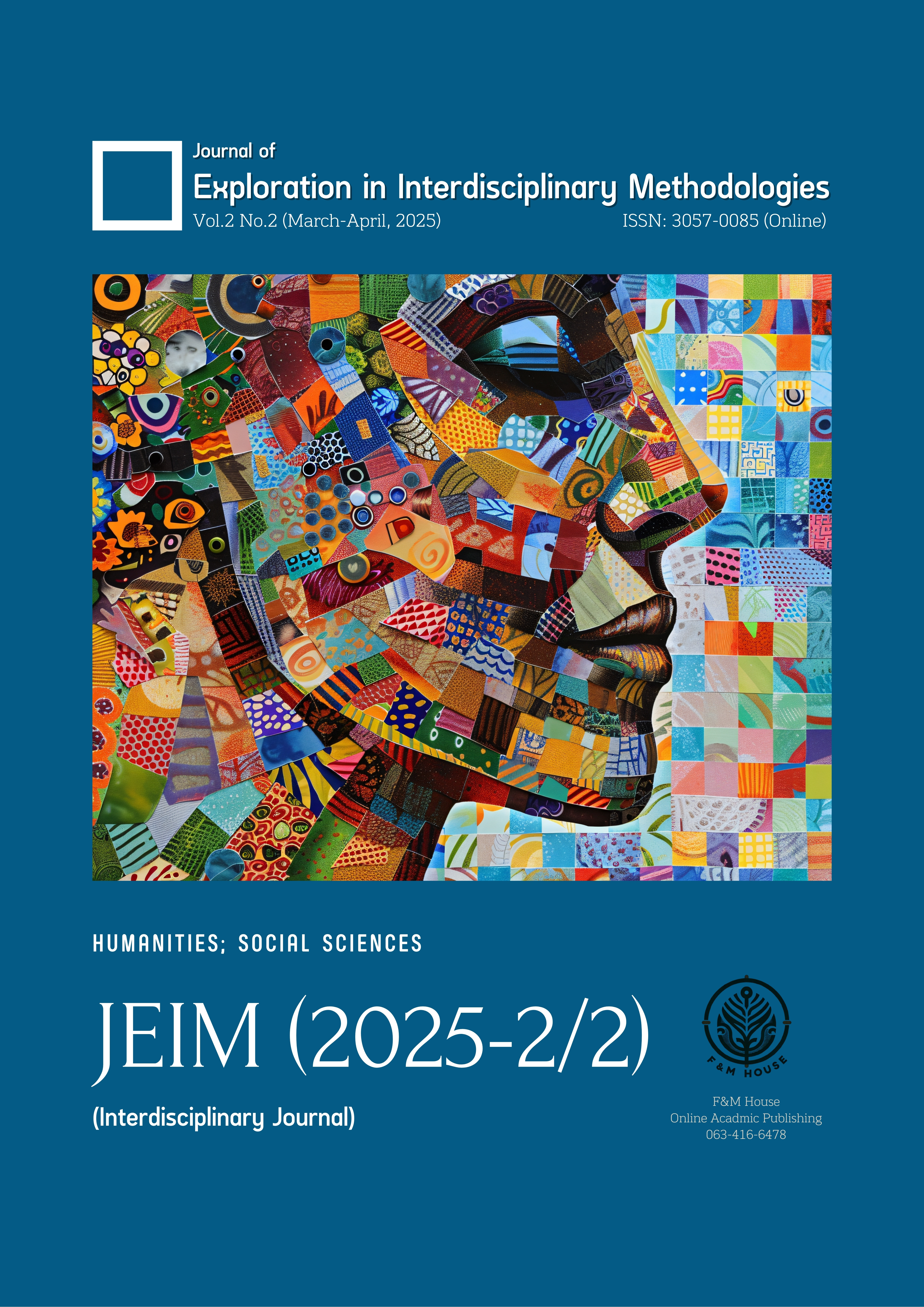Exploring the Intersection of Public Policy and Buddhist Philosophy in Thailand’s Social Welfare System
คำสำคัญ:
Public Policy, Buddhist Philosophy, Social Welfare, Thailand, Compassionบทคัดย่อ
This paper explores the intersection of public policy and Buddhist philosophy in shaping Thailand's social welfare system. The integration of Buddhist principles such as compassion, mindfulness, and interdependence significantly influence the design and implementation of welfare policies aimed at addressing social challenges like poverty, inequality, and mental health. The paper examines how the Thai government's social welfare programs reflect Buddhist values that prioritize collective well-being, ethical governance, and community care. With a focus on vulnerable groups, including the elderly, disabled, and teenage mothers, this study highlights the role of Buddhist philosophy in fostering inclusive and sustainable social policies. Additionally, the paper addresses the challenges of aligning modern public policy with Buddhist ideals, particularly in the face of globalization and economic pressures. By analyzing historical context and case studies, it presents a comprehensive view of how Buddhist thought continues to inform and guide social welfare practices in Thailand.
เอกสารอ้างอิง
(2016). Religion, public policy and social transformation in Southeast Asia. Vol. 1, Managing religious diversity. Retrieved from https://core.ac.uk/download/582407207.pdf
(2020). Southeast Asian transformations: Urban and rural developments in the 21st century. Retrieved from https://core.ac.uk/download/427512038.pdf
Akhmad, A., Teeraphan, P., & Fernando, Z. J. (2023). Unmasking illicit enrichment: A comparative analysis of wealth acquisition under Indonesian, Thailand and Islamic law. Retrieved from https://core.ac.uk/download/614359205.pdf
Ambedkar, B. R., Scherer, B., Bodhiraksa, B., & others. (2017). Incorporating mindfulness: Questioning capitalism. Retrieved from https://core.ac.uk/download/287636647.pdf
Arai, T. (2017). Toward a Buddhist theory of conflict transformation: From simple actor-oriented conflict to complex structural conflict. Retrieved from https://core.ac.uk/download/132324941.pdf
Beck, F. D., & Willetts, M. C. (2020). The influences of Buddhism and development on the well-being of Bhutan’s street dogs. Retrieved from https://core.ac.uk/download/372714865.pdf
Bopp, J. (2016). New momentum to Bangkok's organic food movement: Interspersed scenes led by mindful pioneers. Retrieved from https://core.ac.uk/download/78377868.pdf
Carmody, D. D. (2017). Reaching the Thai people of Southeast Asia: A model for discipleship and leadership training. Retrieved from https://core.ac.uk/download/132272675.pdf
Chintraruck, A., & Walsh, J. (2013). Water resource allocation issues in Thailand. Retrieved from https://core.ac.uk/download/42982754.pdf
Cohen, D., & Tan, K. (2015). Keeping the faith: A study of freedom of thought, conscience, and religion in ASEAN. Retrieved from https://core.ac.uk/download/84320699.pdf
Day, M. J. (2023). Towards ethical artificial intelligence in universities: ChatGPT, culture, and mental health stigmas in Asian higher education post COVID-19. Retrieved from https://core.ac.uk/download/595863363.pdf
Griffiths, M. P. (2018). Modern welfare and traditions of reciprocity: Parahita organizations and emergent ecologies of redistribution in rural Myanmar. Retrieved from https://core.ac.uk/download/556180653.pdf
Hensengerth, O. (2011). Violence research in Northeast and Southeast Asia: Main themes and directions. Retrieved from https://core.ac.uk/download/8790207.pdf
Jaretzky (geb. Nguyen), T. L. H. (2023). Essays on risk attitudes, knowledge, extreme weather, and farmers' behaviors in rural Southeast Asia. Retrieved from https://core.ac.uk/download/552732607.pdf
Jones, M. E. (2008). The social movement of spiritually engaged alternative education in Thailand against the background of reform and globalization. Retrieved from https://core.ac.uk/download/213816370.pdf
Kontio, H. (2014). Breakdown of hegemony: Thailand's political crisis 2006- in Gramscian perspective. Retrieved from https://core.ac.uk/download/250134066.pdf
Laczniak, G. R., & Santos, N. J. C. (2018). Gross National Happiness (GNH): Linkages to and implications for macromarketing. Retrieved from https://core.ac.uk/download/231843528.pdf
Lee, H. K. (2015). Sacral socio-ecological community: Theories of contemporary social Catholicism and engaged Buddhism in complementary practice. Retrieved from https://open.bu.edu/bitstream/2144/14037/7/Lee_bu_0017E_11456.pdf
Meesuk, J. (2017). A grieving nation: Exploring Thainess in the space of emotion. Retrieved from https://core.ac.uk/download/289955538.pdf
Mendis, P. (2025). Buddhist equilibrium: The theory of middle path for sustainable development. Retrieved from https://core.ac.uk/download/pdf/7079463.pdf
Perron, M. (2021). Agro-environmental approaches to the moderation of outmigration from Northeast Thailand. Retrieved from https://core.ac.uk/download/475151251.pdf
Phrapalad Sura Yanatharo. (2021). Buddhism and health enhancement under the arts and culture charter in Khwao Sinarin District, Surin Province. Retrieved from https://core.ac.uk/download/621412206.pdf
Puntasen, A. (2017). From wealth to well-being and finally Nibbana: A bridge from traditional to Buddhist economics. Retrieved from https://core.ac.uk/download/270165077.pdf
Rossi, A. (2012). Turning red rural landscapes yellow? Sufficiency economy and Royal projects in the hills of Nan Province, Northern Thailand. Retrieved from https://core.ac.uk/download/42104839.pdf
Sa-ngiamsak, P. (2016). The life experiences of unmarried teenage mothers in Thailand. Retrieved from https://core.ac.uk/download/43402014.pdf
Somboon, S. (1979). Buddhism and politics: The political roles, activities and involvement of the Thai Sangha. Retrieved from https://core.ac.uk/download/556178590.pdf
Spiranec, T. (2018). Virtues/Pāramitās: St. Ignatius of Loyola and Sāntideva as companions on the way of life. Retrieved from https://core.ac.uk/download/215442423.pdf
Teerakowitkajorn, K. (2019). Masculinized labor activism and geographies of household reproduction in Thailand’s ‘Detroit’. Retrieved from https://core.ac.uk/download/223095938.pdf
Teo, J. W. (2020). Foreign exemptions in tobacco, alcohol, and gambling regulations: A topographic study of East and Southeast Asia. Retrieved from https://core.ac.uk/download/323863816.pdf
Tsomo, K. L. (2019). Out of the shadows: Socially engaged Buddhist women. Retrieved from https://core.ac.uk/download/346457584.pdf
Voss, T. (2025). King Aśoka as a role model of Buddhist leadership. Retrieved from https://core.ac.uk/download/131191953.pdf







